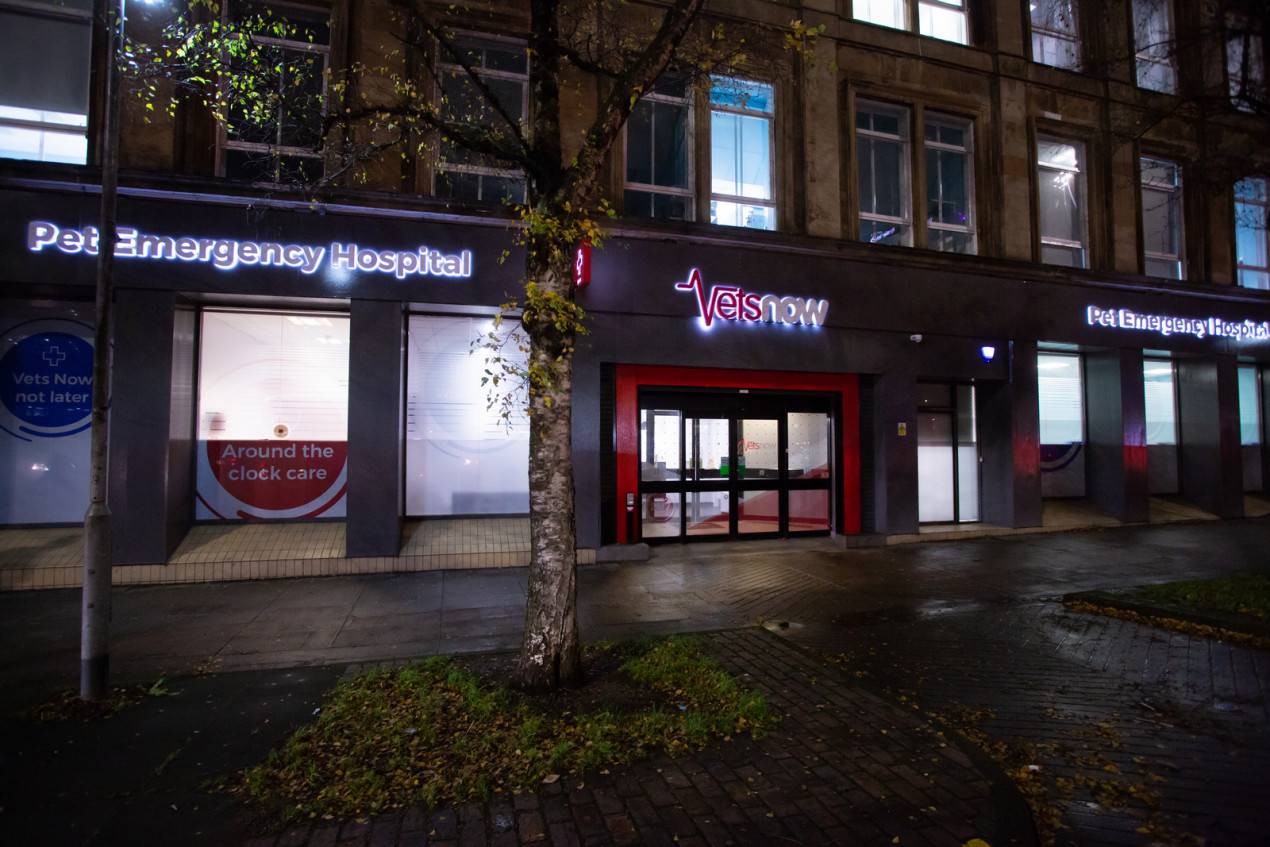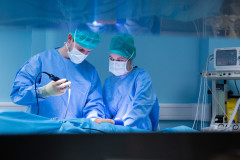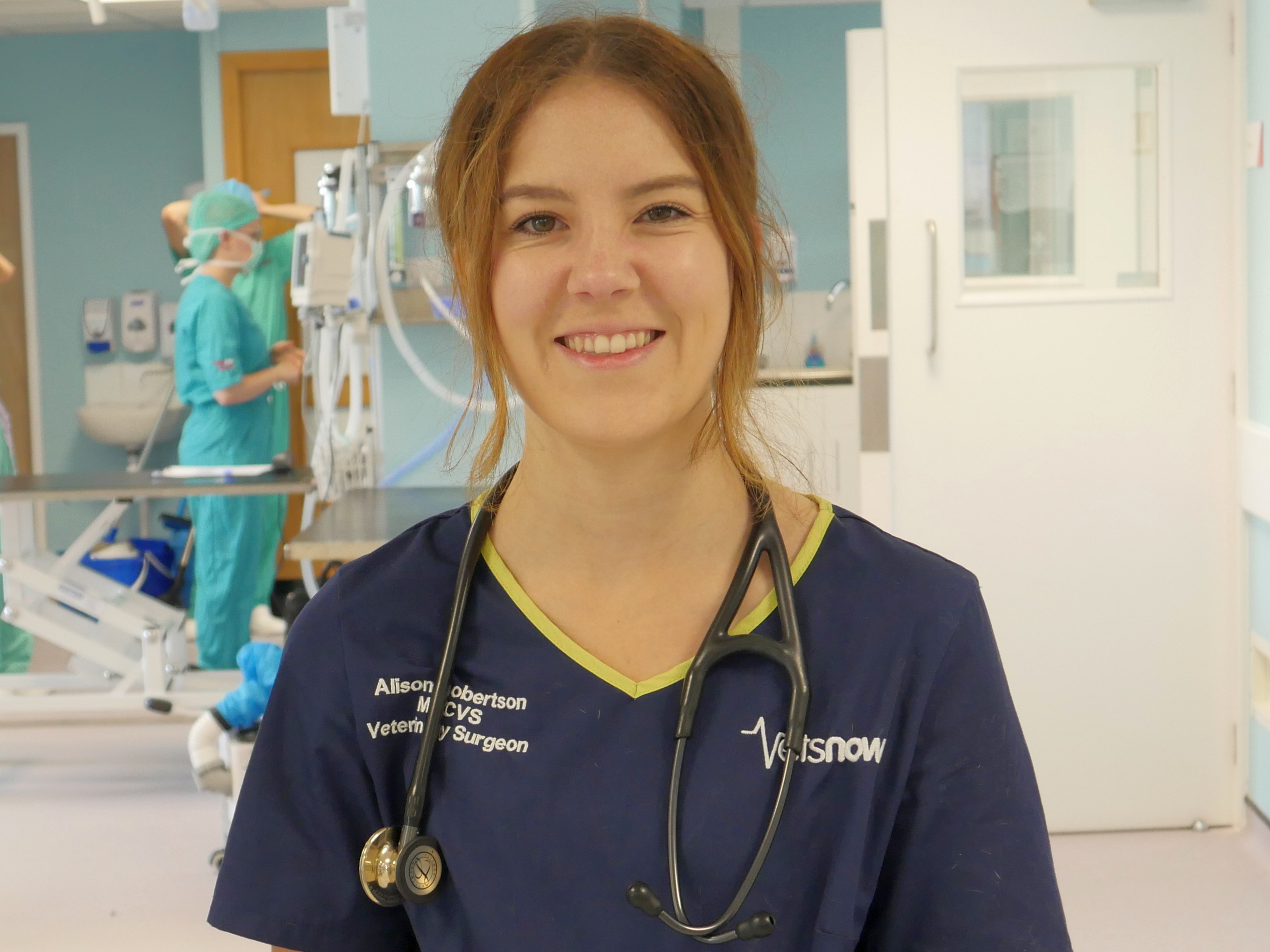
Vet talks positively about her experience on residency programme
Alison Robertson is the latest resident to join our growing team in Glasgow.
Since graduating from the University of Glasgow two years ago, Alison has completed two rotating internships and is now pursuing her ambition of becoming a specialist in emergency and critical care.
In this interview, she reveals her reasons for returning to the city she studied in and what makes our emergency and specialist hospital a special place to work.

Vets Now Glasgow
Our 24/7 emergency and specialty hospital in Glasgow was opened in 2009 and has since established itself as the leader in its field.
Find out moreTell me about your career to date?
After graduating in veterinary medicine from Glasgow in 2017, I moved to Vets Now in Manchester to do a rotating internship. As a new graduate, I really enjoyed the exposure to emergency cases. I felt like I came on really quickly, and from there, I moved to the vet school in Bristol to do another rotating internship.
What’s your role at Vets Now?
I’m a resident in emergency and critical care and alternate between working in the ICU, looking after all sorts of critical patients and working them up, to seeing new emergency cases. This mainly involves working to stabilise them and investigating their condition before transferring them to the ICU team. It’s a good mix of both emergency and critical care.
What attracted you to doing a residency?
As soon as I started working with Vets Now, I knew that I wanted to work in ECC. I developed a passion for it straight away. I really wanted to go down the ECC residency route because there are two separate branches in emergency and critical care and I wanted a mix of both. I didn’t want to work solely in out of hours where you see emergencies, stabilise them, and then move on. I wanted to be somewhere with the potential to work with long-term ICU patients as well. The opportunity to return to Glasgow and work in this hospital was too good to turn down.
What do you enjoy most about your job?
I really enjoy being among a team that’s so dedicated to their profession and so focused on doing the best for their patients. It’s also a pleasure to work with people who are determined to keep developing ECC as a discipline and pushing for new advances.

You might also be interested in:
What’s it like learning from such renowned specialists?
The specialists are all very passionate about their work and are all really good at teaching. This really rubs off on you and you get excited about cases coming in. They constantly push you to do your best and achieve your potential. Everyone’s also very open to giving advice.
What makes the hospital a special place to work?
Even though there’s a fairly big team everyone works together really well, so there’s a good bond between staff. It’s all very sociable. I think the open-plan layout of the building helps with that. It also helps that the equipment is state of the art. It’s what you need to work at this level of veterinary medicine.
What does a typical day look like for an ECC resident?
It really depends on what shift you’re on. If you’re in the ICU you’ll be assessing the patients that are in and coming up with a plan for investigations. On a typical day shift, there’s likely to be between five to 10 patients in there. If you’re working out of hours, it’s likely you’ll spend the evening accepting new emergency referrals. Some of these patients can be quite unstable so these shifts can be intense. You’re certainly always busy and, as a result, you get a lot of exposure to a really big variety of cases.
Do you do any academic work?
All the residents in the hospital receive a lot of teaching from the specialists. We do reviews of topics, lecture reviews and there’s also a journal club. We are expected to do most of this learning off on our own backs but the specialists get very involved and push us to learn as much as we can.

